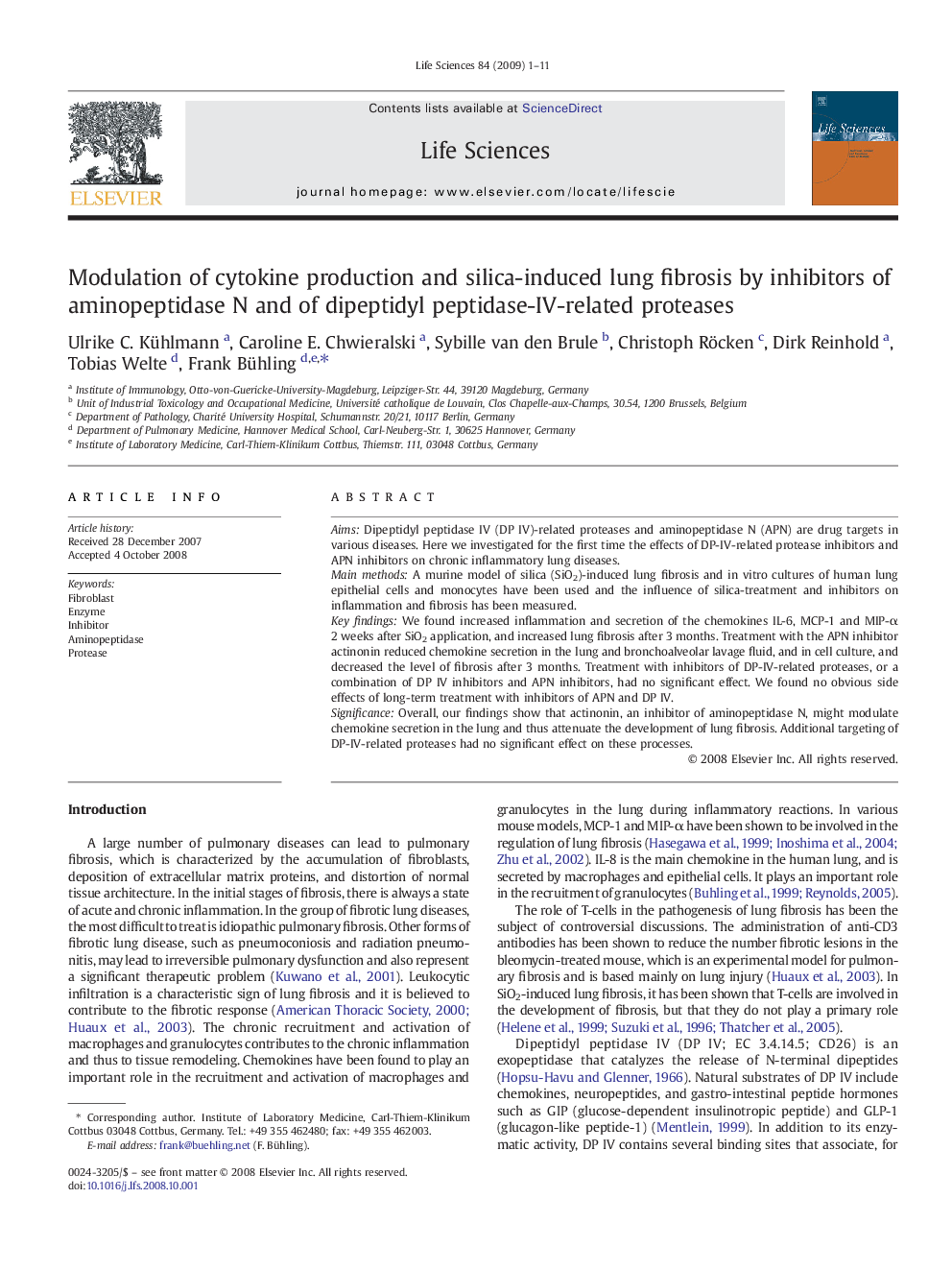| Article ID | Journal | Published Year | Pages | File Type |
|---|---|---|---|---|
| 2553307 | Life Sciences | 2009 | 11 Pages |
AimsDipeptidyl peptidase IV (DP IV)-related proteases and aminopeptidase N (APN) are drug targets in various diseases. Here we investigated for the first time the effects of DP-IV-related protease inhibitors and APN inhibitors on chronic inflammatory lung diseases.Main methodsA murine model of silica (SiO2)-induced lung fibrosis and in vitro cultures of human lung epithelial cells and monocytes have been used and the influence of silica-treatment and inhibitors on inflammation and fibrosis has been measured.Key findingsWe found increased inflammation and secretion of the chemokines IL-6, MCP-1 and MIP-α 2 weeks after SiO2 application, and increased lung fibrosis after 3 months. Treatment with the APN inhibitor actinonin reduced chemokine secretion in the lung and bronchoalveolar lavage fluid, and in cell culture, and decreased the level of fibrosis after 3 months. Treatment with inhibitors of DP-IV-related proteases, or a combination of DP IV inhibitors and APN inhibitors, had no significant effect. We found no obvious side effects of long-term treatment with inhibitors of APN and DP IV.SignificanceOverall, our findings show that actinonin, an inhibitor of aminopeptidase N, might modulate chemokine secretion in the lung and thus attenuate the development of lung fibrosis. Additional targeting of DP-IV-related proteases had no significant effect on these processes.
